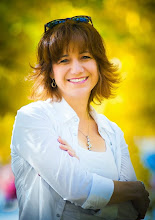All over North America, we have curriculum documents to guide us in our attempt to cover various course content in every grade and in every subject. These documents are filled with more than content but when we refer to them, the most common reference seems to be to the next topic we are to cover. It is essential that we be on the same page and that we head in the same direction when it comes to the healthy and timely development of the minds of our children. Content is the means to develop the greater underlying skills with which we want our students to be equipped.
What I am trying to get at here, is that content is the least of our worries. What do we really want our kids to know and be able to do? Are the recommended concepts important or should we focus more on the skills and attitudes that lead to that lifelong learning we claim to strive for in all our students?
What does it matter if a child can memorize the name and location of each African country or that he or she knows the lakes of a given region? I'm not sure that I could do this. But I can use a map and other various research tools to find the information I need or want to learn. If we dig a little deeper into the resources that are available to us in the form of provincial guidelines, we would find that these attitudes and values are highly stressed as being the real learning outcomes.
I have always wondered why some students are required to memorize all the formulas used in a geometry unit. If you need this in the future, who will stop you from looking it up? My high school Physics teacher believed in this. Every test was an open book test. He told us we had to know where to find the information we needed or we would spend most of our test time looking for it. He was preparing us for an inquiry based future where questions trumped answers and the skill to find them prepared you for any subject, any job and any life situation.
This being said, what should rubrics look like? What portion of the rubric should focus on content and what portion should we devote to skills? If we can come to an agreement on this point, how do we implement such a system in a way that all students are being equally prepared to have the survival skills needed in an ever changing world? I am not preparing my students for a future job. Most of them will end up in jobs that don't even exist yet - so what could I possibly have to offer them that would be of use? The answer: Adaptable skills such as questioning, reading for information, reading for pleasure, synthesis, analysis, and evaluation of everything they see and hear.
I need to teach my students to think for themselves so that when they are faced with challenges, they will have the courage and competence to accept them and know how to address them. I know what I want to do. I know what I need to do. I need to figure out HOW to do it right so that students understand the outcomes as well as the usefulness of the skill they are developing as they explore a wide variety of topics. Armed with this information, they become equal partners in their learning. They then are more likely to become engaged in their learning and accountable for the progress they make.
Isn't that what real learning means after all?
mercredi 25 janvier 2012
Real Learning
Publié par DD-QA à 21:03
Libellés : Assessment, Assessment Criteria, Evaluation, Learning, Research
Inscription à :
Publier les commentaires (Atom)


0 commentaires:
Enregistrer un commentaire